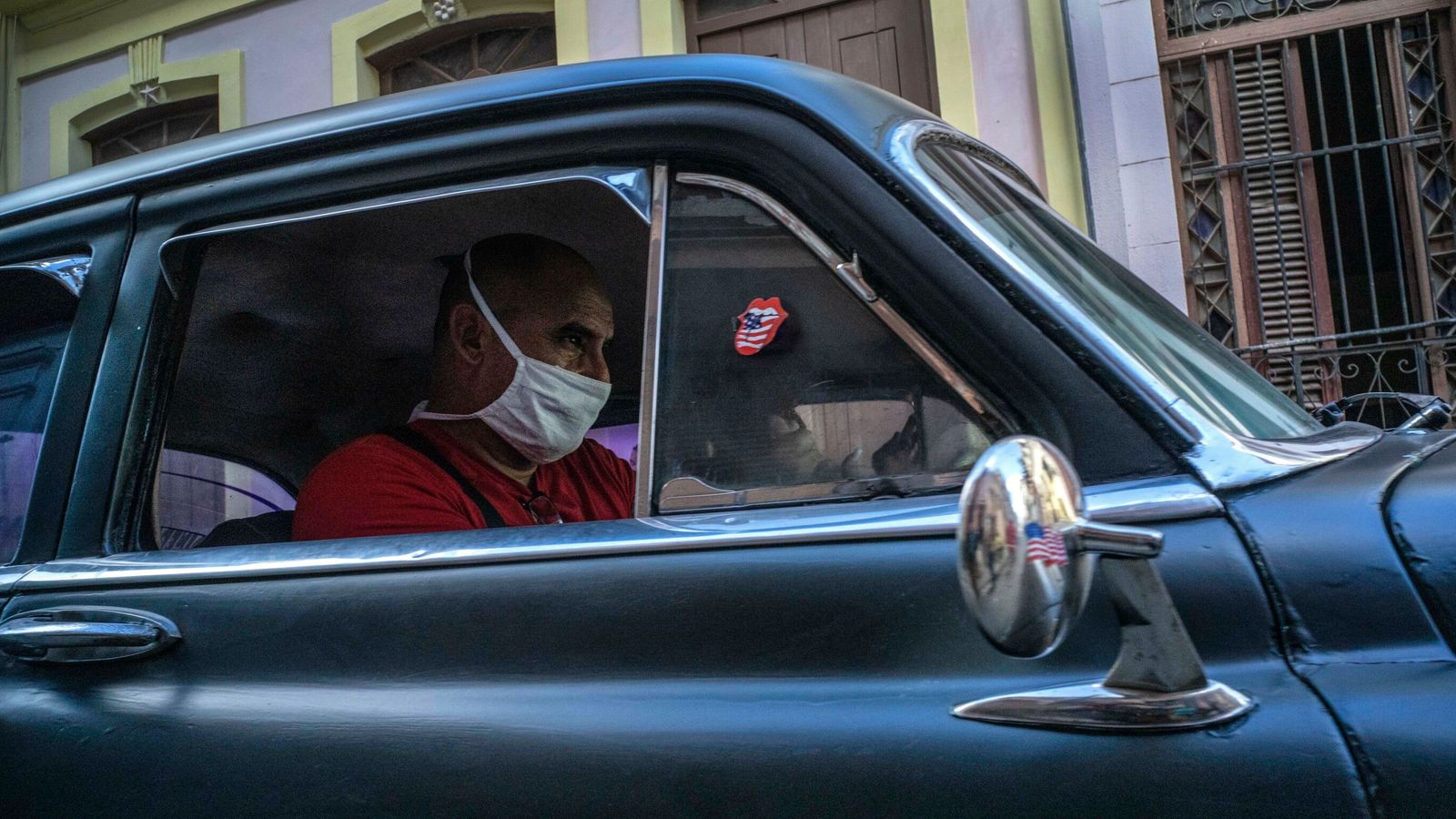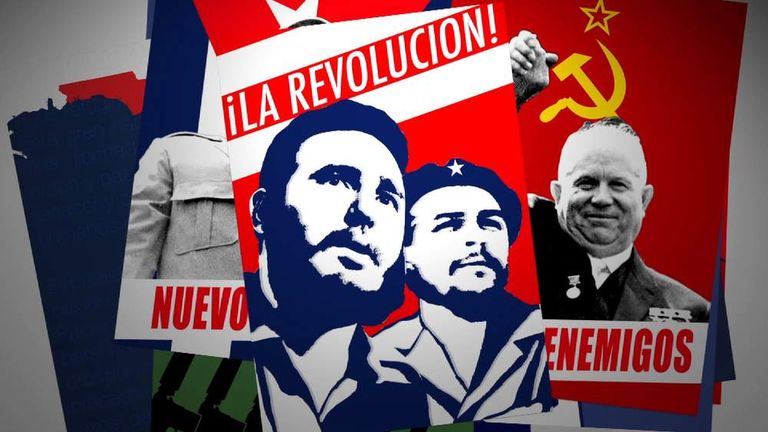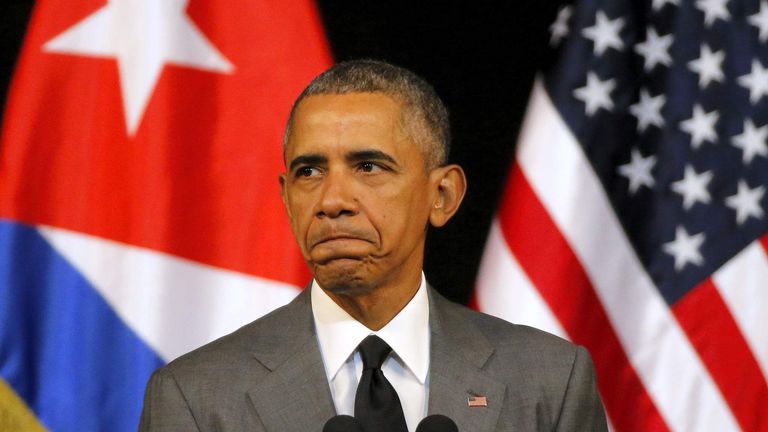The Trump administration has re-designated Cuba as a “state sponsor of terrorism” – hitting the country with new sanctions just days before Joe Biden takes office.
Barack Obama had removed the communist island from the list in 2015, in what was regarded as one of his biggest foreign policy achievements – helping to restore diplomatic ties between Washington and Havana.
But Donald Trump was a vocal critic of the rapprochement during his 2016 presidential campaign. Over the course of his four years in office, the president has sought to reinstate many of the sanctions that were eased or rolled back by Mr Obama.
The Trump administration has been highly critical of Cuba for supporting Venezuelan leader Nicolas Maduro – and has also suggested that the country may have been behind alleged attacks that left dozens of American diplomats with brain injuries.
Cuba, whose current president is Miguel Diaz-Canel, has repeatedly refused to turn over US fugitives who have been granted asylum – including an American woman who fled to the country after escaping a New Jersey prison, where she was serving a life sentence for the murder of a state trooper.
Many US allies no longer believe that Cuba remains a sponsor of international terrorism.
The new sanctions reinstated by Mr Trump mean that most travel from the US to Cuba will be banned, and the transfer of money between the two countries will be heavily restricted.
Secretary of State Mike Pompeo said: “With this action, we will once again hold Cuba’s government accountable and send a clear message – the Castro regime must end its support for international terrorism and subversion of US justice.”
Some experts within Trump’s administration have questioned whether the decision to add Cuba to the terrorism list – which also features Iran, North Korea and Syria – was justified.
This is the latest 11th-hour policy to be announced by the Trump administration. An official representing president-elect Joe Biden said: “We’ve taken note of the last-minute manoeuvres. The transition team is reviewing each one.”
Democratic Senator Patrick Leahy also criticised the move, adding: “Domestic terrorism in the United States poses a far greater threat to Americans.”
During the election campaign, Mr Biden has said he would quickly reverse Mr Trump’s policies on Cuba as they “have inflicted harm on the Cuban people and done nothing to advance democracy and human rights”.
But this may be easier said than done. Emilio Morales, president of the Miami-based Havana Consulting Group, has warned unwinding such measures would take at least a year – and Mr Biden may not be willing to invest this sort of political capital.


